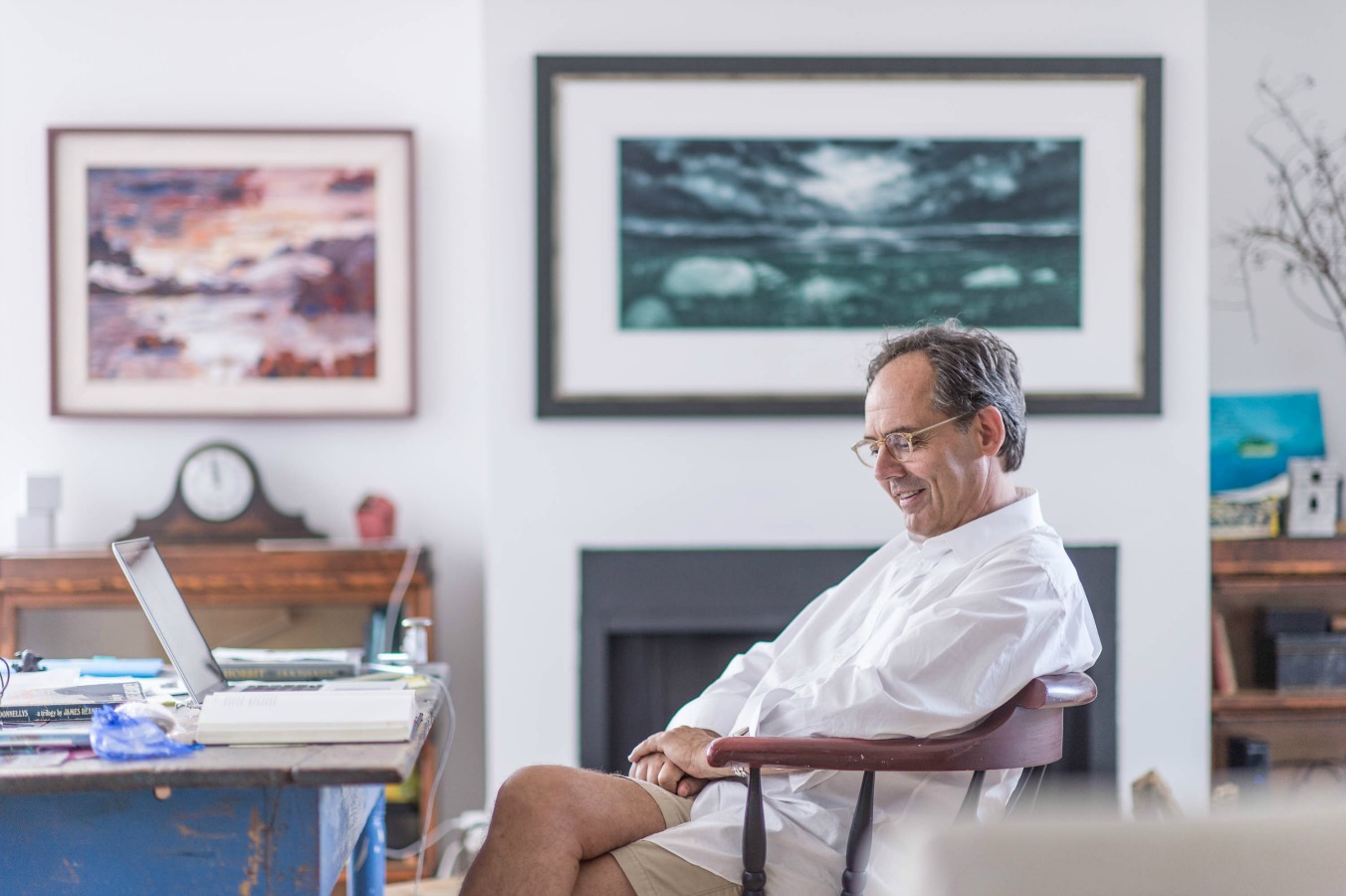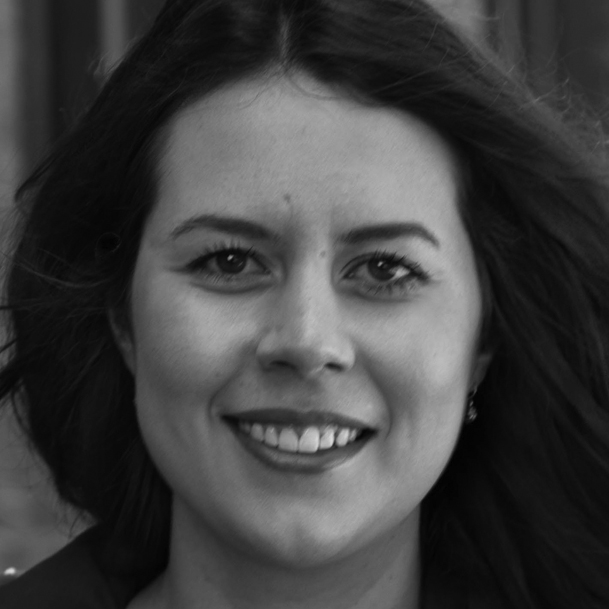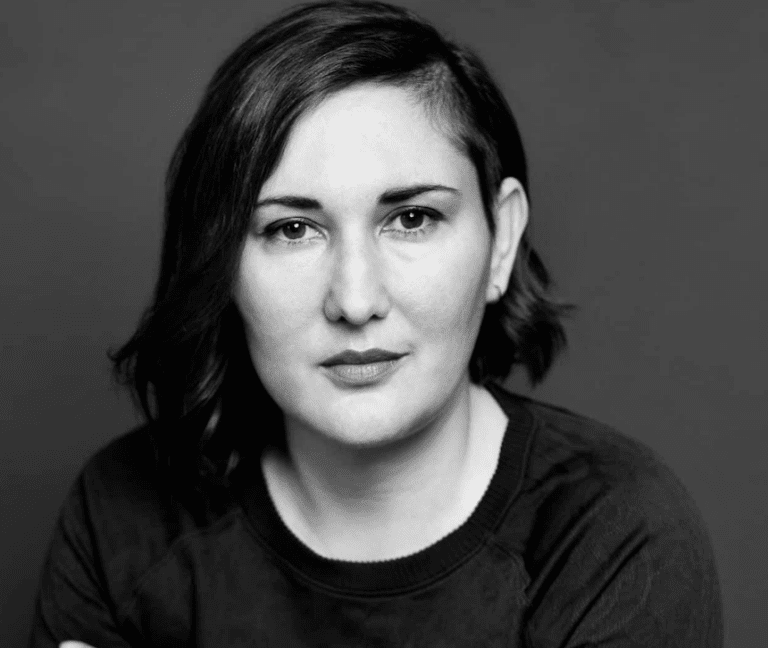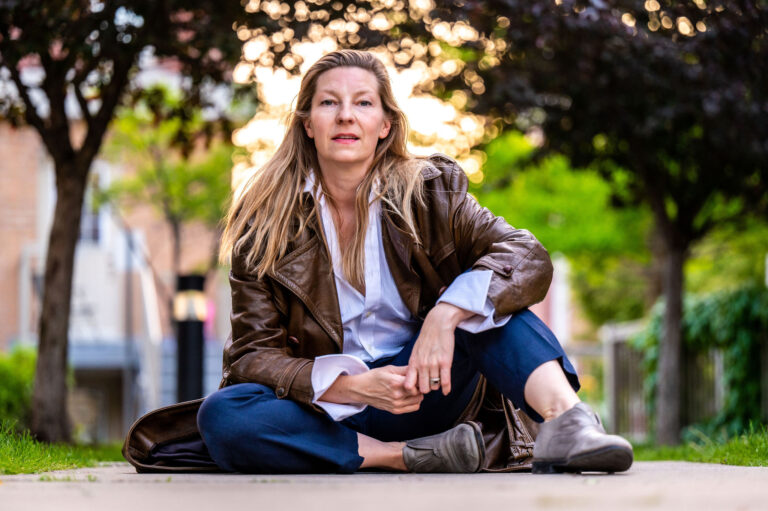Spotlight: Richard Rose
“There are lots of ways to mess up in the world.”
This is how Richard Rose greets me, neither forgiving nor blaming, when we meet for our second interview. It’s a matter-of-factness I appreciate, and a truth I know all too well. The only reason we’re here, in this quiet cafe that will close half an hour earlier than advertised, forcing us to finish our conversation on a bench outside, is that I messed up. I messed up big. It’s a testament to Rose’s kindness and generosity of spirit that he’s even meeting with me again after I accidentally—horrifyingly—deleted seventy-four minutes of our previous seventy-five-minute recorded conversation.
I know. It’s embarrassing. I’m chalking it up to a learning experience.
In this way, Rose says, he can relate. “You learn from failure, not from success,” he tells me. It’s hard to imagine Rose—a four-time Dora Award–winner who founded the experimental theatre company Necessary Angel at the age of twenty-three and has since gone on to enjoy a prolific career, nationally and internationally, as both a director and artistic director—as someone who has failed. But he assures me—not to make me feel better, just because it’s true—that he has. In fact, he tells me, three years after founding Necessary Angel he was on the brink of giving up. Broke, living off a third of his friend’s welfare cheque, he was contemplating quitting theatre and going to law school (coincidentally, another “learning experience” of mine). “I had done some good work,” he says, “some successful work. But it was hard. I just wasn’t making enough of a living.”

That was in February. In May—May 8, 1981 to be exact—Tamara premiered. And that changed everything. Tamara, an environmental theatre piece staged throughout Trinity Bellwoods’ Strachan House, invited viewers to participate in a story based on the relationship between painter Tamara de Lempicka and the celebrated Italian poet Gabriele d’Annunzio. It was a hit, running to sold-out houses in Toronto, leading the nominations at the 1982 Dora Awards (winning Outstanding New Play and Outstanding Production), and going on to have years-long runs in LA and New York. I ask Rose if he knew Tamara would be a success, if he had any inkling how special of a piece he was creating. “I knew it was either going to be major, or going to be disastrous,” he replies. Today, site-specific, interactive theatre is fairly commonplace, but in 1981 a performance where audiences were given the freedom to follow the actor(s) of their choosing through the story’s setting, living out only their chosen strands of the overall narrative, was revolutionary. Tamara not only redefined the boundaries of theatre and of actor-audience interaction, but also Rose’s own life: He was being paid. “I actually signed my paycheque myself,” he tells me, “and it felt good.”
For Rose, earning money wasn’t just about being able to make a living. It was more than being able to pay his actors and his crew, more even than being able to pay his father back, though that was huge. (“We were $10,000 short, he loaned it, and I paid him back in three weeks.”) It was about recognition. “The exchange between the audience paying for their ticket and the company performing the piece is the audience saying that this is an experience of value, that there’s a worthiness to this. It gives [the artist] some dignity.”
Rose has carried that dignity with him through his entire career. “I want to tell stories well,” he says when I ask what kind of story he gravitates towards when putting together a season. But it’s clear in speaking with him that he has built a career telling human stories, stories of identity, stories of truth. “Tamara,” he explains, “allowed audiences to seek their own truth.” The play allowed participants to choose a path or a character that resonated with them. This act of seeking and discovering truth spoke to Rose so strongly that some nights he would also participate, following the audience as they followed the characters, watching his work take effect.

Exploring kaleidoscopic truths is a recurring theme of his. This is especially true of his stagings of Shakespeare, whose plays, Rose says, “are all about identity, about how we identify ourselves, how we know to be human, and what it means to be human.” After ten seasons directing at the Stratford Festival, and a career’s worth of Shakespeare stagings with both Necessary Angel and Tarragon, Rose remains excited by the prospect of delving back into the Bard’s exploration of identity for an upcoming (though unnamed) Shakespeare production. It was this same desire to explore identity that led Rose to play around with the rules when casting his second production of King Lear back in the early 90s. Drawing from the Onnagata, the tradition of male actors playing women’s roles in Japanese Kabuki, he decided to “go straight to objective” and not cast according to the gender of the role. “The intent,” he explains, “was to capture action, and by capturing action (…) and just playing objective, the men in female roles felt legitimately female, and vice versa. [It] allowed the audience to believe quite quickly that the actors were who they said they were, regardless of gender.”
This idea of casting “according to the quality of person,” as Rose puts it, speaks to the current issue when it comes to casting. Who has the right to tell a story? Should any actor be given a chance at any role? Are the creators of theatre limited to telling stories of their own experience, or can they diversify, can they explore any story as it relates to them on a human level? I put these questions to Mr. Rose.
“I think [quality-of-person casting] is the long goal,” he says. “Or the short goal. It’s a goal.” For Rose, this not only means looking past gender constraints, but also race, sexual orientation, age, and disability. “When you cast an actor in a stereotype, whatever that stereotype might mean, it narrows [our understanding] and it represents the kind of order we’re ‘supposed’ to be under.” What interests Rose, an interest that harkens back to his Lear project, is the transformation of an actor. “When an actor transforms, to my mind that’s where the beauty happens,” he says, explaining that in watching an actor’s transformation, creators and audiences alike see that character or that society from a new point of view. “There’s a move away from stereotypical thinking about what [a given] society is.” This is especially true for the actors, who “must work doubly hard to investigate a society that isn’t theirs so as to respectfully and truthfully represent that society. Everybody has to dig deeper.”

I mention the 2015 Kent State University production of The Mountaintop, a dramatization of the night before Martin Luther King Jr. was assassinated. The production, directed by a black man, ran for six shows—three with a black actor as MLK, and three with a white actor in the role. Excellent arguments were made both for the casting (by the director) and against it (by the playwright). I ask Rose his opinion. He takes his time to answer. Choosing his words carefully, he says: “The only way towards goodness and away from prejudice is the act of the imagination. You have to be able to imagine, with compassion, someone else’s experience. And the act of transformation involves empathy and compassion and imagination. To me, what actors do is get through prejudice… In a way, by asking someone to go with seeing a white actor play Martin Luther King is to look at the essence of Martin Luther King and what he talked about, what he fought for… And eventually [both as an actor and as an audience] you get to a point where your pre-judgments prior to this and your pre-judgments after this will radically change.”
Of course, Rose is clear in stating that he understands why artists who have previously been denied a voice should have the right to tell their own stories in their own way at their own time. “Some people feel they can bend the rules with Shakespeare because it’s classical,” he explains, but when it comes to contemporary stories reflecting issues faced by particular minorities, there are no hard and fast rules. “There needs to be generosity” he says, “but the white people in the theatre community also need to understand when people tell them they can’t tell particular stories, not just yet.” He does, however, feel a change is taking place. “I see young actors coming in, and they don’t see barriers; they can do anything.” Eventually he’d like to see a world where crossover in storytelling and casting is the norm. “But,” he acknowledges, “that might just take some time.”

Ensemble of Much Ado About Nothing / Photo by Cylla von Tiedemann
And currently? “I don’t feel restrictions,” he answers, when I ask if he has lines he won’t cross when choosing what stories to tell on his stage. “Can I do a story set in a South Asian community? If I can’t, then you’re telling me I can’t be free as an artist.” He has in fact staged such a piece, a Bollywood version of Much Ado About Nothing, including Ravi Jain as Consulting Director, who “would catch [him] if [he] veered off-course,” he nevertheless found that when he gave a direction that happened to challenge some of their cultural beliefs, “something beautiful happened.” That moment sparked conversation that allowed both Rose and the actors to learn from one another about each other’s cultures, which allowed them to grow a little as individuals. If he had been limited to only telling stories of his own experiences, that moment would not, could not, have happened.
Ultimately, Rose says, he chooses stories that surprise him, stories that somehow “look at something that’s happening in our society today.” While it doesn’t have to be a direct reflection, “sometimes you get really super lucky.” One such occasion occurred in the fall of 2013, when Rose, by this time well into his current tenure as artistic director of the Tarragon, staged a production of The Valley, a play about a depressed young man and his violent altercation with the police. The play had already been chosen when, on July, 27 2013, Sammy Yatim died after being shot eight times by a member of the Toronto police force. The Valley “told the stories of the boy, the police, the mother of the victim, and the wife of the police officer,” says Rose, “and [when staging it, Yatim] was in our consciousness.” For Rose, to “be able to do that play at that time was really important. And to do the outreach education we did at schools and in communities, that was really important.”

Michelle Monteith, Ian Lake, and Susan Coyne in The Valley
But those right-time-right-place cases are rare. Sometimes, says Rose, “all you’re looking for is an emotional connection.” These can be classical plays as well as contemporary ones. “Really rich plays,” he states simply, “will speak to you over and over again.” While he admits there is a sort of fashion to the theatre, and plays go in and out of style, if they speak to the truth—any truth—of any society, “they will come back and will be important to do again. The lens on the play changes because society changes.”
I ask how he avoids repeating himself. Presumably that’s a real risk. He says he made the mistake, early in his career, of doing two shows in close succession where, “rather than examining the material [of the second show] unto itself without the prejudice of [his] own pre-thinking,” he “did the same thing twice.” I ask if it’s possible that even if he had examined the pieces individually he might have come to the same conclusion for both. “No” he says, “every piece of writing is so different, and even if the same author is exploring the same material over and over again… they’re changing the scenario, the context, the way the narrative develops so as to reinvestigate the same experience.” He says that’s what you want. To “be reinvestigating the same material, but you want to do it in different ways, and you want to look at it through a different lens.” He tells me what his mentor told him: that in order to make art, one “needs to find the connection between [oneself] and the piece of art.” And that, he says, is the secret. “You can’t repeat yourself because each piece will trigger something in you that’s new. You bring something of your life experience to each piece, and you can’t bring the same life experience to more than one.”

All that said, he admits with the same matter-of-factness with which he greeted me, “it’s got to be okay to fail.” For Rose, it’s the mistakes he’s made that have become “the points of inspiration to move the work forward in another direction.” And at the end of the day, his mistakes have served him well. “I’ve been fortunate,” he acknowledges, “but I also know I’ve made my own fortune.” He’s done so by learning from failure, by “working with the flaws and mistakes life hands [him] to evoke what [he’s] after.” “You make adjustments,” he says, “and you find the beauty.” That can’t be disputed, and I leave our meeting comforted. If this is where mistakes and failure get you, there may be hope for the rest of us.










Comments